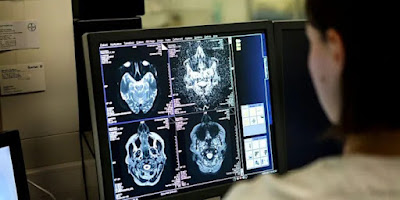 |
They spoke of their concerns about the disease, saying that it was spreading rapidly and that the cases could be higher than previously thought.
Symptoms include fatigue, hallucinations, muscle weakness, and an anonymous Canadian whistleblower from Vitalité Health Network, one of New Brunswick’s two health authorities, said that more people are developing symptoms of a mysterious degenerative neurological disease, according to The Guardian.
The Atlantic coast of Canada has been analyzed by researchers for more than two years, but the cause of the disease is not yet known.
Symptoms of the disease include memory problems, muscle cramps, inexplicable extreme weight loss, pain in the extremities, and hallucinations.
The disease was originally thought to be a human prion disease, in which proteins called prions cause normal proteins to bend abnormally, but tests have shown that it doesn’t .
So far, the Office of the New Brunswick Medical Director of Health has publicly said that 48 people have the disease, but sources told The Guardian that that number is believed to be much higher the disease, said the bureau.
Speaking to The Guardian about the severity of the disease, the whistleblower said he would go public to raise awareness of how quickly the enigmatic disease is spreading and affecting patients:
“I’m really concerned about these cases because They appear to be evolving The disease affects women and men equally, patients since 1885.
An epidemiological study conducted by the New Brunswick Department of Health ruled out any food, behavioral, or environmental stresses that could cause the disease.
Following that statement, a document was submitted to the Canadian Association of Neuropathologists claiming that those who died from the disease died from misdiagnosis or missed diagnoses, such as Alzheimer’s and cancer, and were not part of the group.













